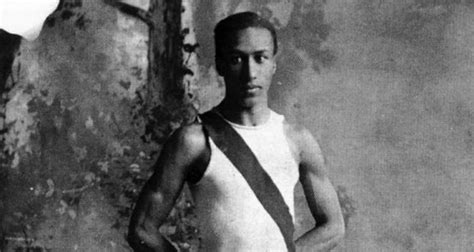A Quote by Ed Gass-Donnelly
I'm fascinated by the possibilities of human behavior, of how two people raised the same way can end up at such different places.
Related Quotes
The way one behaves and feels as a Dutchman and Dutchwoman is the result of a long development. It is by no means 'the natural way' or 'the human way' of behaving, it is a particular code of behavior which has developed over the years. And these people, the immigrant people, come from a group where different standards of conduct and behavior have developed. What clashes are these two standards of conduct and behavior.
I always have the feeling that my subjects are the same - I'm just changing my point of view. I'm going to move a little bit this time and watch it a different way. But at the end, I think I'm always fascinated by the same things, except I will express them over and over again, with different words, with different colors, with different shapes. But strangely it will always be the same topics or subjects that are so important to me.
It amazes me how easy it is for things to change, how easy it is to start off down the same road you always take and wind up somewhere new. Just one false step, one pause, one detour, and you end up with new friends or a bad reputation or a boyfriend or a breakup. It's never occurred to me before; I've never been able to see it. And it makes me feel, weirdly, like maybe all of these different possibilities exist at the same time, like each moment we live has a thousand other moments layered underneath it that look different.
I'm fascinated by what makes up a self, how one becomes a self, how much is it an answer to others and how much is it an essence of self. We learn how to be people from other people. Then you think - what's personal freedom? Is self-creation possible? This book is dedicated to a friend of mine who really did re-create herself. I didn't do that - I stayed in the circus and am a circus performer like my parents were. I did what I was raised to do - I'm glad I did but I'm fascinated by the people who managed to do something else. I was always very curious about other people.
The world's major religions in the end all want the same thing, even though they were born in different places and circumstances on this planet. What the world needs today is a convergence of the different religions in the search for and definition of the cosmic or divine laws which ought to regulate our behavior on this planet.
The problem comes up because we ask the question in the wrong way. We supposed that solids were one thing and space quite another, or just nothing whatever. Then it appeared that space was no mere nothing, because solids couldn't do without it. But the mistake in the beginning was to think of solids and space as two different things, instead of as two aspects of the same thing. The point is that they are different but inseparable, like the front end and the rear end of a cat. Cut them apart, and the cat dies.
We are all different human beings, and we all have different backgrounds, and we stem from different social strata. That is what defines how you hear people talk, how you want to quote them when you speak. We all have different fears and doubts and complexes and this is what shapes the way we see other people. Especially characters.
We have the same genetic code for all living creatures. We have a large number of genes that are manifestly the same, but with detail differences - they look like different drafts of the same book. In extreme cases, like a human and a beetroot, it's like the difference between Matthew and Luke's Gospel - clearly they tell the same story, but with different words. Whereas with a human and a chimp, it's like two different printings of Matthew, with a few typos in one.
I write books because I have always been fascinated by stories and language, and because I love thinking about what makes people tick. Writing a story... 'The Giver' or any other... is simply an exploration of the nature of behavior: why people do what they do, how it affects others, how we change and grow, and what decisions we make along the way.





































